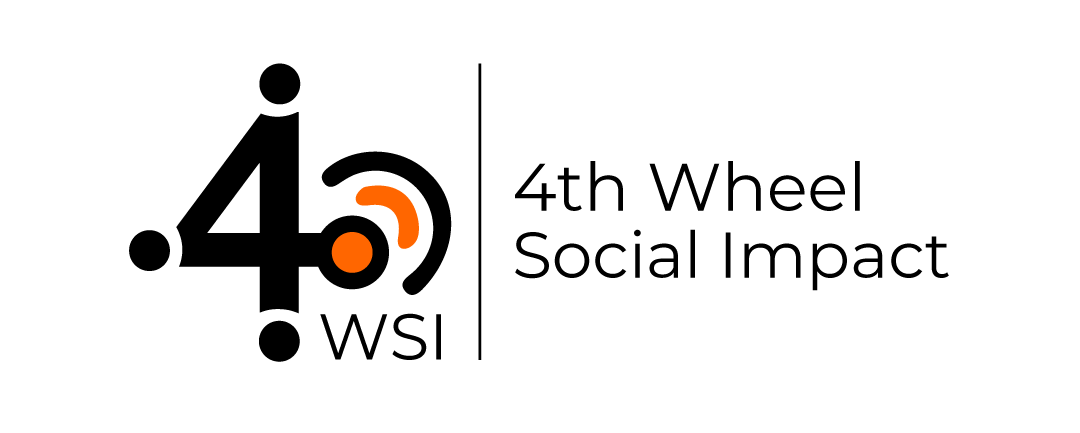HDFC Bank
- The 4th Wheel

- Aug 21, 2025
- 4 min read
Updated: Dec 9, 2025

HDFC Bank - Focused Development Project (FDP)
Skill Development
Partner/Client
HDFC Bank
Sector
Skill Development
Location
Uttarakhand and Odisha

Key Highlights
The Focused Development Project (FDP) by HDFC Bank is a strategic endeavour to foster progress in key areas such as education, healthcare, livelihood improvement, and community empowerment. The project seeks to enhance educational facilities, improve healthcare provisions, promote skill development, and create income-generating opportunities through targeted initiatives. It focuses on empowering young individuals through skill training and capacity development to offer sustainable career pathways for socio-economic advancement. For this project, the skill training institutes implemented a structured approach, covering training needs assessment, mobilization, counseling, batch formation, training sessions, internal and external evaluations, placement assistance, and follow-up to support career progression. This project used the Social Return on Investment (SROI) method to analyze the generated social, environmental, and economic value. It involved identifying stakeholders, valuing impacts, and calculating the ratio of social value to investment. This helped understand the project’s broader benefits, guiding decision-making and resource allocation for social initiatives.

Insights & Findings
Enrollment Motivations: Students enrolled in the course for diverse reasons, ranging from a genuine interest in specific topics to pursuing job placements. The appeal of better income opportunities and low course fees added to the program design’s attractiveness. Many sought to improve their skills and knowledge, and the opportunity for free training that often leads to job placements serves as a significant incentive for enrollment.
Exposure Visits: These visits were crucial in providing industry-specific knowledge and insights to participants in the skill training program. Gender differences emerged in key learnings due to variations in course enrollments and industry preferences. While males focused on learning about technology-related roles during exposure visits, females emphasized customer service and communication skills.
Placement Advice: Recognizing the economic landscape, the placement officer advised candidates to relocate to cities where their skills were more valued. For instance, in Haridwar, where salary prospects may be limited, the placement officer encourages candidates to explore opportunities in other locations, optimizing their income potential.
SROI Analysis: The Social Return on Investment (SROI) analysis of Uttarakhand centers revealed a compelling impact on the lives of participants and society. The impact evaluation study showed that the program’s input cost was significant, but the cumulative value of outcomes generated by the program resulted in a high SROI ratio.
Course Distribution: The distribution of courses based on candidates’ gender revealed certain trends. Courses such as Customer Care Executive and General Duty Assistant tended to be preferred by female candidates. In contrast, courses like Mutual Fund Agent and Food & Beverage Service Steward tend to attract male candidates.
Health-Related Courses: After studying the current trends, it can be inferred that the candidates in health-related courses hold a competitive advantage in today’s job market due to the heightened demand for healthcare professionals following the COVID-19 pandemic.
Alumni Feedback: Alumni provided positive feedback on the program, highlighting its role in improving 21st-century skills such as confidence, communication, and subject-specific technical expertise.
SROI Analysis of Bhubaneswar: The SROI analysis of Bhubaneswar revealed a compelling impact on the lives of participants and society. The social impact assessment indicated that although the program’s input cost was significant, the cumulative value of outcomes generated by the program resulted in a high SROI ratio.

Research Tools
Alumni Telephonic Survey
Student Focus Group Discussions (FGD)
Implementation Survey
Employer Interviews
Approach
Alumni Telephonic Surveys: Alumni from the skill training institutes were contacted via telephone surveys to gather information on demographics, current job status, income, and how their skills and knowledge had evolved since completing the training program.
Individual Interviews: As a part of the monitoring and evaluating the program’s effectiveness, interviews were conducted with various stakeholders, including family members of program alumni, trainers, and employers who had interacted with program graduates. These interviews gathered perspectives on their experiences, perceptions, and the effects of the training program.
Focus Group Discussions: Organized with current students and program alumni, these discussions facilitated dialogue on the program’s impact evaluation, covering topics like changes in employment status, perceived benefits of the program, and the influence of program participation on social dynamics.
Value Game for SROI Calculation: Students identified program benefits, represented them visually, and collectively prioritized them. They also linked these benefits with tangible gift values, aiding in assessing the program’s importance in their lives.
Recommendations
Enhance Advertising Strategies: Utilize effective communication and marketing methods to attract more candidates. Use digital channels like social media, collaborate with local institutions, and create visually appealing promotional materials.
Increase Exposure Visits: Offer candidates practical insights into their chosen fields to better their understanding and skills. Schedule regular visits to various workplaces, industries, and job sites. Encourage candidates to interact with professionals during visits and incorporate post-visit discussions and reflections into the training program.
Facilitate Internships: Provide candidates with valuable work experience to bridge the gap between education and employment. Collaborate with local businesses and organizations to create internship opportunities. Design internship programs with clear learning objectives and evaluation criteria and offer stipends or incentives to support interns’ participation.
Conduct Pre and Post-Assessments: Conduct exams during training sessions to gauge students’ progress. Pre- and post-training assessments are essential for evaluating candidates’ knowledge. Trainers can focus on addressing weak areas identified in the pre-training assessment.
Expand Training Centers: Additional training centers are needed to reduce travel costs and have easy access to learning. Opening centers in various cities would help candidates minimize time and travel expenses. This expansion would also accommodate more candidates in the training program.
Secure Job Placements with Larger Companies: Improve job opportunities and increase candidates’ salaries by securing placements with larger companies. Establish partnerships with reputable local and national corporations. Organize job fairs or recruitment drives in collaboration with these companies. Create a dedicated team responsible for employer outreach and placement.




Comments